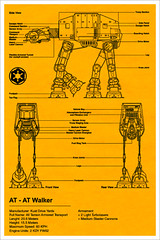 Image by Vespertin via Flickr
Image by Vespertin via FlickrThe problem is churches need to collaborate for mission but with sometimes hundreds of years of separate development, their organisational structures are incompatible.
How do we deploy paid ministers to work together or on behalf of more than one tradition?
How can we use premises with a variety of legal restrictions on use for mission?
How can we be sure volunteers or churches don't become liable for financial commitments made on their behalf?
Technicalities come from a variety of places. So. for example, there is:
- the law of the land, eg charity legislation, health and safety, safeguarding
- laws enforced by the state on behalf of the churches, eg Methodist model trusts or Church of England Canon Law
- Legislation enacted by the churches through their councils, eg Methodist Standing Orders
- Local standing orders, custom and practices, etc
Often problems arise because legislation is misinterpreted in various ways, eg
- people take on more power than they in fact have
- or they assume legislation is restrictive when it is in fact permissive

No comments:
Post a Comment